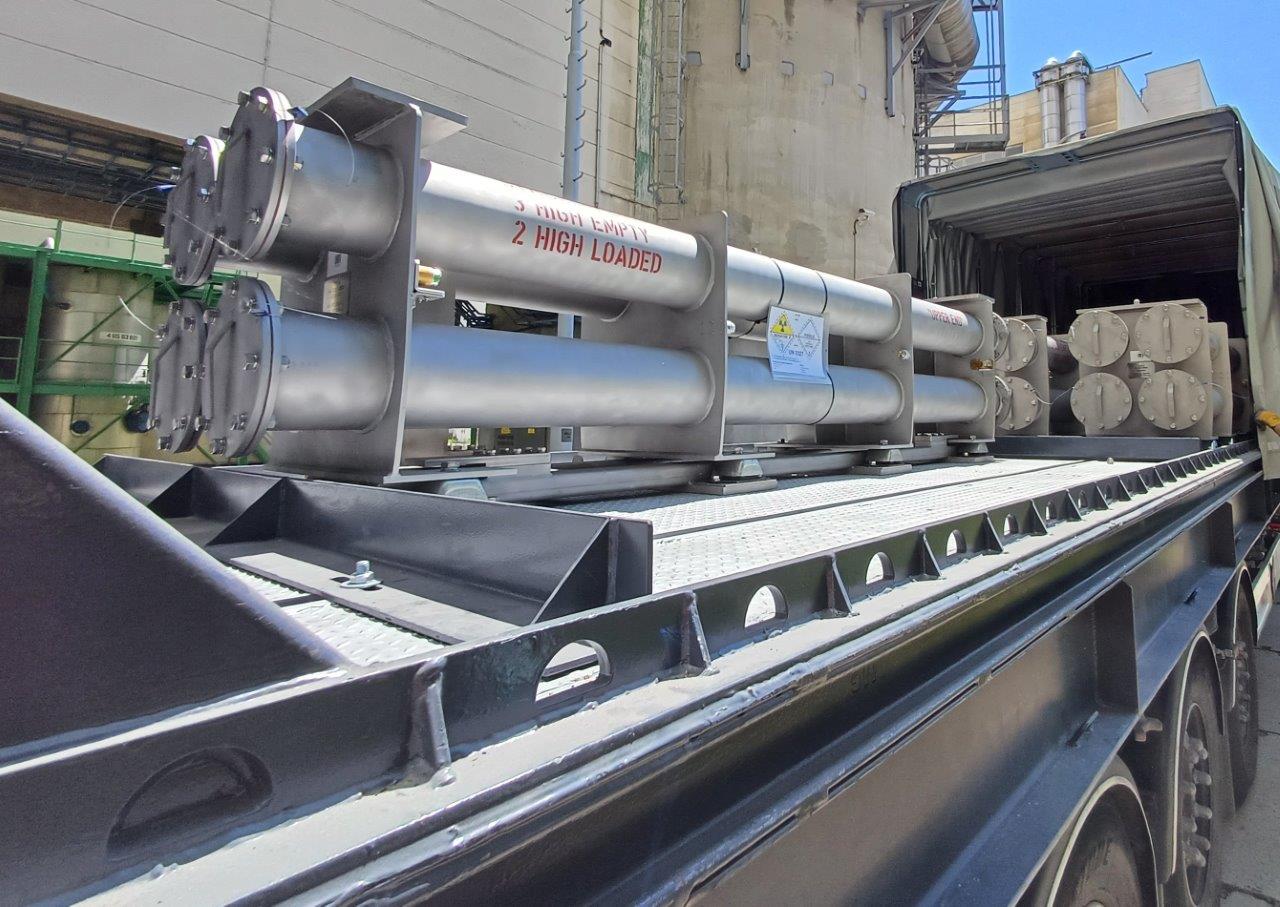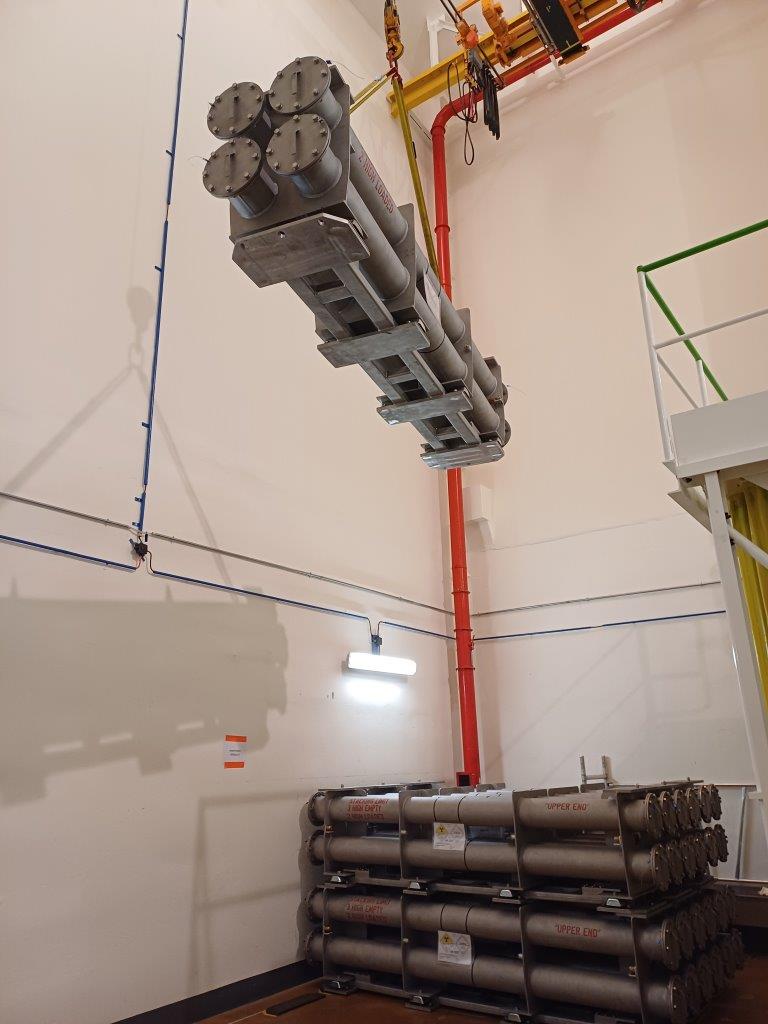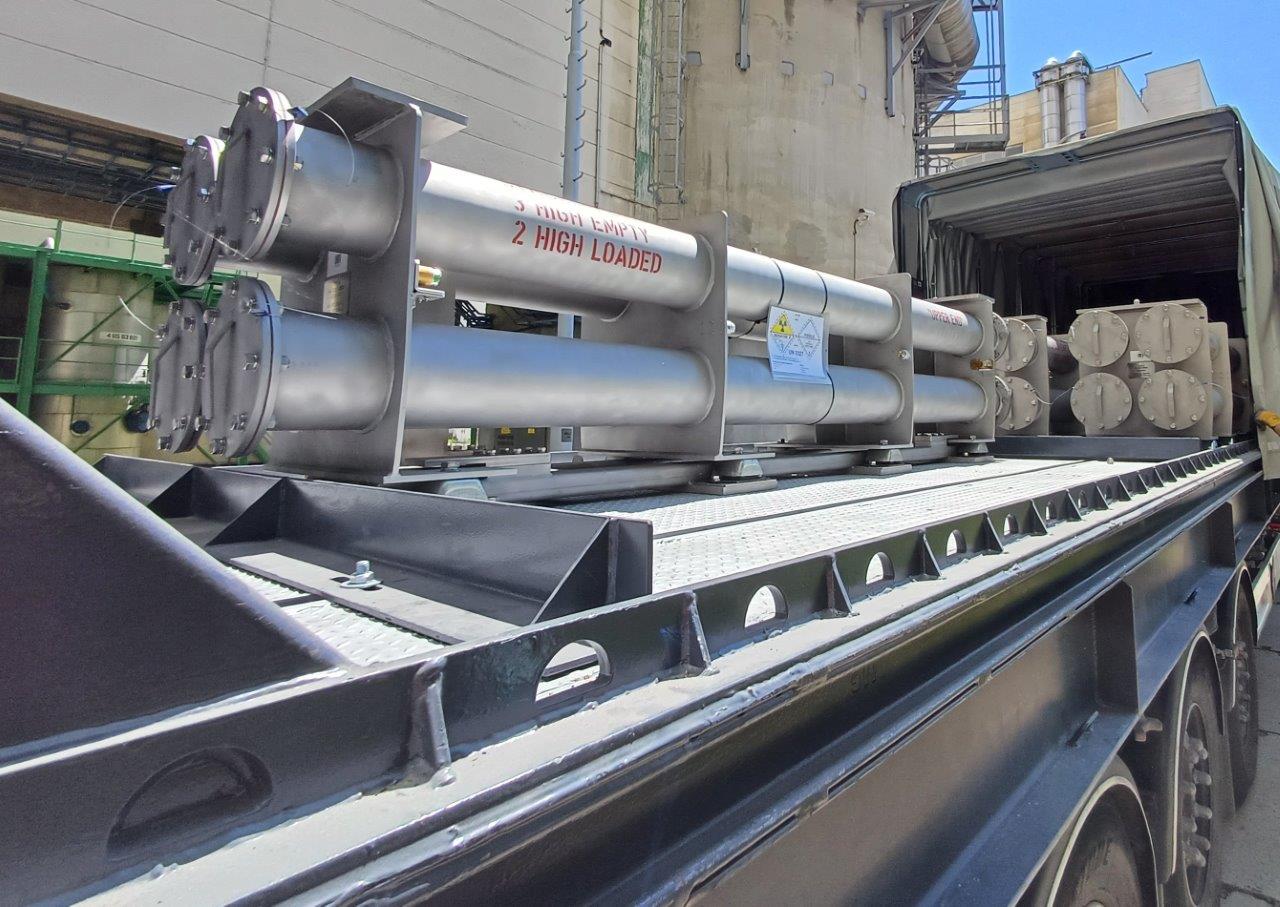First Westinghouse nuclear fuel arrives in Dukovany
Historically, the first batch fuel assemblies from Westinghouse have arrived at the Dukovany Nuclear Power Plant. They follow deliveries to Temelín. Fuel supply diversification of suppliers and the first deliveries represent a strengthen the Czech Republic’s energy security.

While Westinghouse fuel returned to Temelín after fifteen years, this is a premiere for Dukovany.
“This is a step that significantly increases the energy security of the Czech Republic. In addition, in addition to diversifying nuclear fuel suppliers, we also hold strategic stocks at both of our nuclear power plants,” says Daniel Beneš, Chairman of the Board and CEO of ČEZ.
ČEZ began working to increase the number of suppliers at the end of the last decade. In 2022, it signed a contract for the supply of fuel assemblies for the Temelín power plant with Westinghouse and Framatome. A year later, it also concluded a contract with Westinghouse for Dukovany, where the first deliveries arrived in recent days.
“Both types of newly supplied VVER fuel, produced in Västerås, Sweden, are fully compatible with assemblies from other manufacturers and offer increased fuel efficiency and extended fuel cycles,” explains Tarik Choho, President of the Westinghouse Nuclear Fuel Division.
Eighty newly delivered fuel assemblies are currently being accepted in Dukovany.
“This is primarily a top-notch engineering product, so our first step is detailed input checks. Before it is actually loaded into the reactor, we still have to obtain permission from the State Office for Nuclear Safety. We are currently preparing the documents for submitting the application.," said Bohdan Zronek, member of the Board of Directors and Director of the Nuclear Power Division.
The new fuel must meet the strictest safety requirements. Existing and new fuel types meet the requirements for the transition to longer fuel campaigns. These should now last 16 months at Dukovany and 18 months at Temelín. ČEZ expects that, thanks also to this modification, it will have reached an average annual generation of 32 TWh by 2030.
- Tomorrow evening, ČEZ will shut down Temelín Unit 1 for inspections and refuelling
- EDU II company calls on EDF to publish a bid for the construction of a new nuclear power plant in the Czech Republic
- Temelín Unit 2 is producing electricity again
- Temelín will disconnect the second unit as planned this evening. Energy workers will adjust the turbine mounting.

